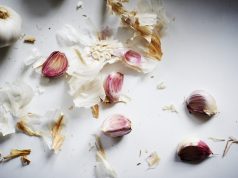Possibly the busiest workers in our environment, bees play an important role in much more than simply providing honey for our daily feteer. With levels of concern rising about bees becoming endangered by environmental factors and disease, Cairo West Magazine went to seasoned beekeeper and honey-producer Peter Naiem to get the big picture.
Egypt, for its main part, is an arid environment, except for the limited areas of the well-irrigated land of the Nile Delta, although the arable land is filled with cultivated crops, not much other bee-friendly vegetation is available. Beekeeping for honey production has traditionally been in the Beheira, Manoufia, Gharbeya and Kalioubeya regions. Cairo, as a city, does have gardens, parks, flowering plants and trees, but the kind of trees and plants in use now do not offer much for the bee. This could be changed, but on a serious scale it would be a task for the people who are responsible for the public areas in the city. Citizens of course can help within the limits of own land or other space.
6 Things to Know About Bees and Crop Sustainability
- Although there are more than 20,000 distinct bee species around the world, only seven species of bees make honey.
- Bees are indispensable pollinators of most ecosystems. There are 369,000 flowering plant species, and 90% of them are dependent on insect pollination. Without bees, many of the world’s most important crops would fail and directly affect the food supply of humans and countless other species.
- Crops pollinated by bees make up 35% of global food production. Some plants are pollinated by wind, but that rate is very slow. Insects are the primary pollinators on the planet. Beetles and butterflies also pollinate, but bees are the most efficient insects for this purpose.
- Without bees, we wouldn’t have apples, cherries, almonds, and many other fruits and vegetables like avocado, broccoli, most leafy greens, cucumbers, pumpkins, and many more.
- While honeybees are important, there are many other pollinators out there, including butterflies, bats, hummingbirds, flies, and other bee species.
- Cotton is very reliant on pollination. The disappearance of bees will lead to a huge setback in cotton production.
Why Bees are Endangered
Many factors are influencing the decline of bees, including habitat fragmentation, increased use of neonicotinoid pesticides, colony collapse disorder, climate change and the deadly varroa mite, their number one killer.
Although hobby beekeeping is on the rise around the globe, it should be known that according to a very recent Egyptian law from 2018, bee hives should not be kept closer than 500 m from any human housing. If you are fortunate enough to have a rural property or space on the outskirts of the city you may be able to start your own hive. Anyone who wishes to pick up beekeeping should firstly make sure that they are not allergic to bee stings, bee venom or pollen.
A hive has to be in a windless spot facing east, to catch the first warming sun rays in the morning. The spot should be in the shade for the summer but in the sun for the winter. There should not be any domestic animals in the near vicinity, like horses, cows, donkeys or large numbers of dogs or cats, because their smell can make bees nervous. The availability, close-by, of a variety of crops to ensure as much as possible a continuous flow of natural food for the bees, is of paramount importance.
Contrary to popular belief, bees are not really likely to sting. So long as you avoid wearing perfume or cologne and move calmly when near them you should not be at risk. You need protective gear when working on the hive though.
To start out you need a hive, a feeder, a protective hat and costume, or several layers of clothing with well-closed arms and legs, plus sugar for the first month – 0.5-1 kg per week per hive, dissolved with water into a 50:50 syrup. Raw honey can be added, or a herbal tea can be used, made of plants that the bees normally love, like thyme.
4 Tips for Keeping a Bee-friendly Garden, Rooftop or Balcony
- Plant bee-friendly plants and flowers. In the countryside, bees enjoy various herbs like lavender, thyme, marjoram, spearmint, black cumin and rosemary as well as beans and other non-hardy plants, then citrus trees like lemon and orange yield pollen. Guava is a great bee tree, again providing pollen. Various gourds, like zucchini and watermelon in the early spring are also mainly pollen plants; then cattle fodder like clover and alfalfa in the early summer; then cultivated cotton and banana in late summer. There are also some surprising everyday good sources – like for example the gazania, or African Daisy, which also flowers almost around the year, and quite abundantly in the winter and early spring, and is a very good source for pollen, with an antibacterial effect for the hive.
- Provide water for bees to take back to the hive, and ensure year-round planting so bees have a source of flowers in the winter.
- Avoid the use of pesticides.
- If you just have a window box or balcony, you can still plant bee-friendly flowers.
Resources to explore:
Manoufia Honey. Facebook: manoufiahoney
Beekeeping Department of the Plant Protection Institute. Tel: 02 3337 2193
El Tahra – 4 Sobhi Haridy St. off Haram Road. Tel: 02 3561 7583
Bee House and Agri Industries – 6 El Manakh St. Midan Opera, Ataba. Tel: 02 2391 2785









